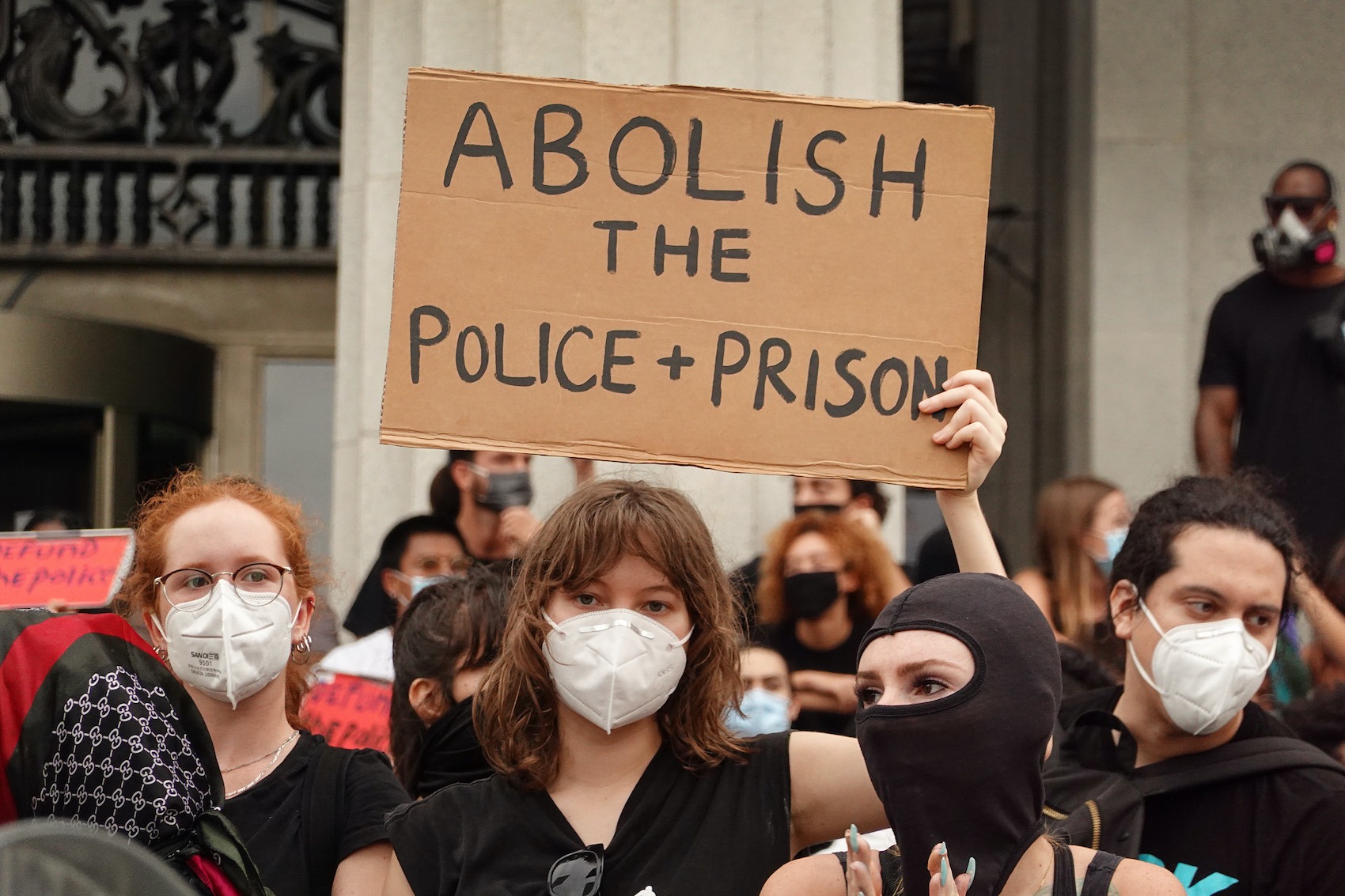Florida Governor’s Bid To Felonize Protesting Is An Attack On Democracy, Justice Advocate Says
Legislation proposed this week by Gov. Ron DeSantis also seeks to withhold state funding from counties that move to decrease police budgets.

Florida Governor Ron DeSantis’s bid to increase penalties for protesters and withhold money from municipalities that decrease police budgets is a direct affront to Floridians working to rid the state of police violence, activists say.
DeSantis, a Republican, proposed legislation on Monday that would allow prosecutors to seek felony charges against protesters who damage property, such as a monument, or inflict injuries. It would also result in a mandatory minimum six-month jail sentence for anyone found guilty of striking a law enforcement officer and cut state funding to counties that act to defund the police. Anyone who organizes or funds a protest that becomes violent would be eligible for prosecution under Florida’s RICO Act. Additionally, the bill would protect drivers from liability if they injure or kill anyone while “fleeing for safety from a mob.”
“[DeSantis] is telling Florida residents fighting for a better future that he will throw them into a cell, or stand by and applaud vigilantes who would do them harm if they continue to mobilize and organize,” said Nailah Summers of Dream Defenders, a Florida social justice group that organized Black Lives Matter marches in the state this summer. “He’s telling us there will be no justice in Florida, no democracy.”
The legislation, the Combating Violence, Disorder, and Looting and Law Enforcement Protection Act, is the latest effort by Republican lawmakers to criminalize protesters. In August, after protesters camped outside Tennessee’s Capitol for two months, the state legislature passed a law that made camping on state property a felony. That bill also enhanced penalties for people who spit on police, disrupt meetings, and block streets. In Utah, protesters have been charged under the state’s gang enhancement laws that can carry up to a life sentence.
DeSantis has asked lawmakers to consider the bill during the November legislative session, though lawmakers have previously declined to pass bills that would criminalize protesting. In 2017, after demonstrators blocked highways around the country to protest Donald Trump’s inauguration, Florida Republicans proposed bills in the House and Senate that would have legalized “unintentionally” running over anyone blocking traffic as a form of protest. But those bills failed to become law.
Republicans control both chambers of the legislature, but the Florida Senate—where the majority is narrower—has in recent years acted as a moderating force on the House. Those divisions are rapidly eroding, however. The state GOP is now dominated by Trump-aligned Republicans; 141 of the 160 total statewide legislative seats are up for grabs in November.
